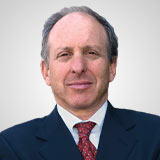Vanguard expert Daniel Wiener takes the advice of the fund family's founder to heart when he highlights three winners in the growth space.
Dan, Vanguard recently did a paper—a white paper so to speak—on the makeup of their funds; their philosophy about funds. Can you talk a little bit about that, and what you think it is?
Yeah, there was this white paper they brought out that had to do with portfolio development, how investors should go about building their portfolio from the top down. They go through the old arguments about asset allocation being the most important aspect of how your performance will come out in the end.
It really depends on where you put your money to start with. They talk about rebalancing, which is always interesting to me, because all the research I have done on rebalancing suggests that rebalancing reduces your returns.
It improves the risk profile a little bit. It may reduce your risk a little bit, but it does not improve your returns, and it generates a lot of taxable events, particularly if you are doing it in a taxable account.
What is funny about Vanguard promoting rebalancing is that Jack Bogle, the founder of Vanguard, is really against rebalancing. He basically, many years ago, came out and said, "I don’t think you should rebalance." It is that old philosophy about letting your winners run.
There was one wrinkle in this paper that I was kind of amused by. They suggested that investors might want to reduce the tax implications and trading implications of rebalancing by using the income and capital gains distributions that their funds created to rebalance—rather than reinvesting the money, taking it and putting it into the portions of your portfolio that maybe were underweight or had underperformed. This is something I have been telling investors to do for 20 years of my newsletter.
They must have been reading your newsletters!
I know they read my newsletter. It took them a while to figure out that maybe it was a good idea, but now they are promoting this notion as well.
That makes a lot of sense. And in the paper, did they talk a lot about diversification within asset classes at all?
Well, sure. I mean, that is the broad idea at Vanguard, and the broad idea behind building a portfolio. But you know, on the one hand, Vanguard says all you need to buy is a total stock market index, but on the other hand you really need to diversify.
You’ve got a 100 and some other funds that you can buy into.
That’s right; that’s right.
Now, what is your personal feeling on somebody who is just getting into the market? They are, you know, a little afraid of buying individual stocks, so they want to do funds or they want to do ETFs. Would you say that they need to have a broad outline of lots of different funds and different sectors?
No, I wouldn’t. But again, it is very hard to make a blanket recommendation when you don’t know who is the person. What’s their objective? How old are they? What’s their risk tolerance?
But I would say that—you know—the greatest probably all-in-one fund that you could own if you’re sort of middle-aged, conservative, but you want some growth would be the Vanguard Wellington Fund (VWELX). It's 60% in value-oriented stocks, 40% in intermediate corporate bonds. It has a tremendous track record.
The managers are at Wellington Management, they are solid—completely solid—low expenses. You start there. If you told me that this investor was someone in their teens and you are putting money away for them...
We wish!
Right. Well, you know, I have a lot of clients who say, "I want to start putting money away for my little kids." I mean, I would put them in one fund, PrimeCap Odyssey Aggressive Growth (POAGX) and let it go. When my kids were little, I put money in a PrimeCap fund and health-care fund at Vanguard, and it paid for them to go to private college.
Related Reading:
This Fund Gets a Gold Star
Get a Piece of the Action in Europe
Fail to Plan and You Plan to Fail










